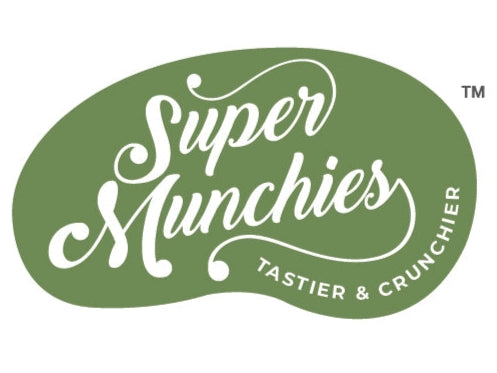
What Is Gluten and Why Are So Many People Avoiding It?
The phrase "gluten-free" has become more well-known lately, appealing to people who are trying to live better lives as well as those who are health-conscious. There are many gluten-free choices available on social media and in supermarkets. But what exactly is gluten, and why is it avoided by so many people? Let's examine gluten in more detail.
The Rise of Gluten-Free Living
Many people have adopted a gluten-free diet due to the demands of those who suffer from gluten-related conditions like coeliac disease or gluten sensitivity. In addition to these people, there is a growing demand for gluten-free goods from those looking for health advantages like improved digestion, more energy, or weight loss.
What Exactly Is Gluten?
Wheat and other grains, including barley, rye, and oats, contain a class of proteins called gluten. Gliadin and glutenin are the two primary protein constituents of gluten. These proteins create a sticky, elastic substance that gives dough its structure and chewiness when gluten-containing flour and water are combined. Gluten is what makes bread rise, and it’s responsible for the soft, airy quality you see in a new loaf of sourdough or a piece of pizza.
To put it simply, gluten helps many foods stay together by acting as a binder. Bread and pasta, cakes, pastries, and even certain processed meals like soups and sauces include it.
Common Sources of Gluten in Everyday Foods
Unbelievably common, gluten may appear in items you wouldn't often think of. In daily diets, the following are some typical sources of gluten:
- Bread & Bakery Products: Gluten is commonly found in bagels, muffins, pastries, and loaves of bread.
- Pasta & Noodles: A significant source of gluten, pasta is mostly derived from wheat.
- Cereal: Wheat or barley is an ingredient in a lot of morning cereals, particularly the sweet ones.
- Baked Goods: Flour and other gluten-rich foods are frequently used in cakes, cookies, and pies.
- Processed Foods: A lot of processed foods, such as salad dressings, soups, and sauces, include gluten as a stabiliser.
- Beer: Barley, which includes gluten, is used to make the majority of beers.
It's crucial to be aware of what gluten may be hiding in your meals if you like a wide range of foods, since it might be there when you least expect it.
Why Do People Go Gluten-Free? (Health vs Trend)
There are several reasons why people decide to avoid gluten. Some people do so because they have been diagnosed with gluten intolerance or coeliac disease. Others are more interested in following a trend that offers a number of health advantages, such as improved digestion and cleaner skin.
Health Reasons
Celiac Disease: Gluten consumption sets off an immunological reaction that destroys the small intestine in this severe autoimmune disease. Avoiding gluten is medically required for those with coeliac disease.
Gluten Sensitivity/Intolerance: Often known as non-Celiac gluten sensitivity, this condition can be equally uneasy as Coeliac disease but without the long-term intestinal damage. Many people who do not have Coeliac disease experience symptoms like bloating, gas, headaches, or fatigue after consuming gluten.
Trend Reasons: Without a medical reason, some people decide to live a gluten-free diet because they think it would improve their digestion, energy levels, or weight reduction. Although some claim these advantages, there is no scientific proof that a gluten-free diet is beneficial for non-sensitive people. It's crucial to speak with a healthcare professional before making big dietary adjustments.
Super Munchies and the Gluten-Free Promise
Although there are many gluten-free foods and items available thanks to the gluten-free movement but not all of them are healthy. Health concerns are raised by the large amounts of sugar, fat, and chemical additives found in many manufactured gluten-free meals.
That’s why it’s essential to read labels carefully. Gluten-free snacks can be an excellent choice for those with gluten intolerance or Celiac disease, but they should still be part of a balanced diet that includes whole, nutrient-dense foods like fruits, vegetables, lean proteins, and whole grains.
Is Gluten Bad for Everyone? What Science Says
Gluten is normally healthy for most individuals, but it can be detrimental to those who have gluten sensitivity or coeliac disease. Gluten is normally easily digested by the body. According to some research, eating gluten may cause inflammation or gastrointestinal issues in those who are not diagnosed, but further study is needed to confirm this. There is no need to avoid gluten unless you have a verified gluten sensitivity, according to nutritionists; it's all about finding balance and being aware of how your body responds to different meals.
FAQs: Gluten-Free Diet Demystified
1. What is meant by gluten-free?
A gluten-free diet eliminates all foods containing gluten, which is a protein found in wheat, barley, and rye.
2. What foods contain gluten?
Foods like bread, pasta, cakes, cookies, and many processed foods often contain gluten. It’s also found in many sauces, soups, and beer.
3. What are the symptoms of gluten intolerance?
Common symptoms of gluten intolerance include bloating, diarrhea, stomach cramps, headaches, and fatigue.
4. Can I find gluten-free snacks?
Yes, there’s an ever-growing list of gluten-free snacks available, from chips and crackers to cookies and granola bars. However, it’s important to choose wisely and opt for healthier options when possible.
Final Thoughts: Eat Without Worry – Know What’s Inside
Making educated decisions regarding a gluten-free lifestyle is aided by knowledge of gluten and its nutritional function. Avoiding gluten is necessary for people with coeliac disease or gluten sensitivity, but other people may decide to do so for health, fashion, or curiosity. Not all gluten-free foods are created equal, and a gluten-free diet isn't always healthy. The emphasis should be on moderation and balanced nutrition, regardless of whether this is due to personal preference or medical grounds. Think about whether gluten is good for you or if you're better off with gluten-free products.




